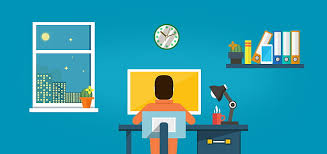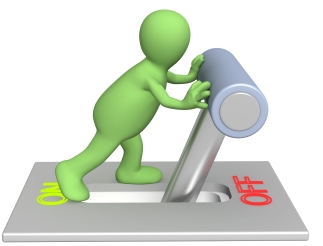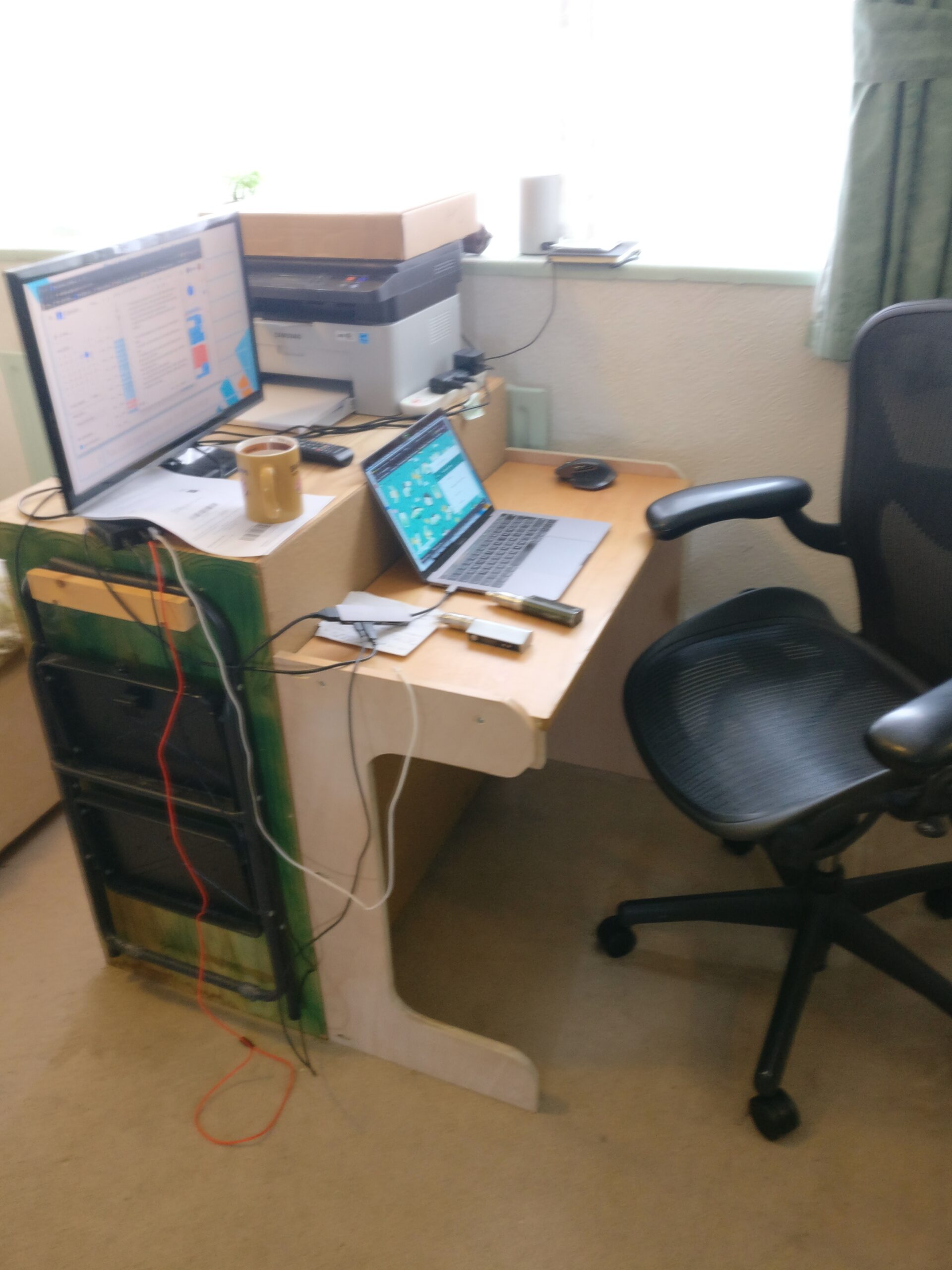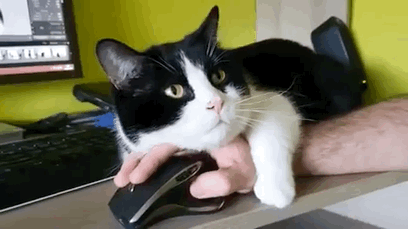
Some of this seems like common sense, no-brainer stuff, but I still see people struggling to get the balance right, so I thought I’d jot down my experiences in the hope that it helps somebody.
Enforce some separation
This can be hard! Which just means we have to work harder at it. Not all of us are fortunate enough to have a home-office room. In fact, as I write this, I’m sitting in a tiny corner of my bedroom. It’s not quite as bad as it sounds; I’ve got a good chair and a custom-made desk. More about that in the “be comfortable” section below.
Do whatever it takes to give yourself that distance between work and the rest of life. Wherever possible, I recommend having your “work” space dedicated to just work – don’t use that area for anything else. Likewise, keep your work activities confined to that area only, and don’t let them spread out into the rest of your life. Unless it’s a really nice day, and you can set up to work effectively in the garden. Yay, sunshine!
Set fixed time limits
It’s all too easy to think “I’ll just answer these last few emails” at 6pm… then look up later and realise it’s 9pm. Set limits and be ruthless with yourself about them. You might just find that knowing you’ve got a knock-off time coming up forces you to prioritise, and you get everything important dealt with by the end of the normal work-day.
Throw that switch

Combining both of the above, really: at the end of your working day, pack away your laptop just as you would if you’d been in the office. Yes, really. Shut it down and pack it away. Then leave your “office” area and move on with life. This is a hugely powerful symbolic activity. The physical act of shutting down and packing away helps throw the mental switch from “work” to “life”. Think of it as a mode-selector switch. Reinforce this by disciplining yourself not to set up your work area again until the next morning… just as you would if you’d been in the office.
Respect your eyes
Think about office life? Even when you’re “head-down” on a complex project, there are always visual distractions: people walking past, typically. These encourage you to look up (however briefly), and forces your eyes to reset their focal point. Have you noticed an increase in headaches since you started home-working? This is why. All those varied-distance interactions you used to have, now take place at a static range. Your eyes never get to refocus, and that causes eye-strain, which in the short term means headaches. In the longer term, it means damage to your eyes.
All those varied-distance interactions you used to have, now take place at a static range. Danger, Will Robinson!
So take regular health-breaks. Set yourself automated reminders, if necessary. Do something different, look at something else. I get it – you’re stuck in a pokey flat-share and have limited options. So simply stand up for a few minutes and look out of the window. Find a way to hit the reset button on your eyes, and do it often, Standing at the window is a personal favourite, as it’s good for your back & neck too.
Be comfortable
Balancing your laptop on your knees while perched on the edge of the sofa may be (barely) workable for a half-hour meeting once a month. It’s no good for all-day, everyday use. I can’t stress enough the importance of a good chair and sturdy desk/table. Almost any work-surface will suffice as long as it’s large enough, the right height, and free from wobble. And you can’t beat a high-quality ergonomic chair. You know, like the one you use at the office.
Keep in mind that when things get back “to normal”, it will be a different normal
If you don’t already have suitable furniture, I’m afraid it’s time to go shopping (although a sturdy table is easy enough to make if you have tools & materials to hand; pro tip: you could do a lot worse than a discarded off-cut of kitchen countertop resting across the top of a couple of two-drawer filing cabinets). Do some research, read reviews, ask your colleagues what they use. Then bite the bullet and spend the money. Yes, I know that’s easy for me to say and that times are hard. Think of it as an investment in your health and future. Also consider how much you’re saving on commuting costs in the meantime – surely you can donate a month or two of that saving for the sake of preventing severe back & neck pain? Keep in mind that when things get back “to normal”, it will be a different normal, and working from home is likely to feature in your life in some way.

You will have to invest a moderate amount to get a quality chair. But be careful not to get lured into the four-figure price-bracket… as you climb up the quality scale, you’ll quickly hit the law of diminishing returns. For example, I was lucky enough to be gifted a pair of Aeron chairs some time ago, and while I adore them and would HATE to have to use anything else… would I pay the retail price? No. Not ever. You can get a really good chair for about £150-£200. You can get an even better one for four times that much. Is it four times better? I doubt it. Spend what you must to get something you’ll be comfortable in. Anything more than that is probably cash you could use better elsewhere.
I like to move it, move it

One of the biggest challenges I’ve personally faced has been the lack of exercise. My daily commute included about an hour of walking. Not jogging or even route-march speed-walking, more of a gentle stroll to be sure BUT still some useful exercise. And apart from walking the dog occasionally and my DIY home improvement work, about the only exercise I ever got. Now that’s not on the cards, so I have to find the discipline to fill this gap because exercise is necessary, and not just because that’s how I got to work. I’ll be honest with you – I’m not a fan. I can’t think of any exercise I actually enjoy. Walking is tolerable, especially if there’s something to look forward at the end of it, and you’ve got a good soundtrack to help you along.
But that’s me. What about you? Be brutally honest with yourself about how much exercise you’re getting. Then make a commitment to do something about it. You’re an intelligent, fabulous and resilient person (I know this because you’re reading my blog), so I’m sure you can rise to the challenge. Don’t neglect this aspect of your health.
Keep up the water-cooler gossip
Well, maybe not “gossip” as such. But think of all those informal conversations you had in the passage, the kitchen, the break room. You can bring much of that value forward. It just takes more effort. Ping your team a message “I’m going for a coffee. Join me in #breakroom for a natter”, or similar. Have a Slack channel/Hangouts/Zoom room or whatever set up for drop-ins. Don’t try to force a business benefit. Start conversations along the lines of “wow, this coffee is terrible! Do you have any recommendations?” and let the chats meander where they want to – just like they would at the office.
The lowest-value outcome possible here is that you’re building/reinforcing personal relationships (and that’s a pretty valuable commodity to invest some time & effort into). More likely, many of the conversations will then wander off into “while we’re talking, I had an idea about that race-condition problem we hit yesterday…”, and somebody’s idle thought, that he probably hadn’t fleshed out enough to formally approach anyone with, is suddenly on the table a lot earlier than it might have been – just like in the office.
And if the conversation doesn’t get any more in-depth than discussing last night’s movie, that’s extremely valuable relationship-building time, well invested. It helps bridge the social gap we’re all feeling at the moment, and reminds us that we’re humans, part of a team, and that we care about each other.
Don’t stress the social
There’s a lot of emphasis right now on keep some level of distanced social activity alive. My thoughts on this: let it be. By all means use the opportunity to meet up on Tuesday evenings remotely with your Make Your Own Keyboard group, or whatever. But don’t force the issue. The trouble with remote socialising is that it’s the same mechanical activity you’ve already been doing all day. Sitting in the same chair, in front of the same laptop, staring at the same screen, talking to the same people. Screen-fatigue is a real thing. Don’t make it worse by expecting people to add another couple of hours of it for a “fun” activity. People will groan. Let it be.
Take a break
It’s NOT a waste of your annual leave days. It’s an investment in your sanity and health
Grumpy
I took a week off in the middle of the pandemic, to do some physically-gruelling, limited-brain-engagement work. Breaking down old fences, felling trees, clearing ground, and building a new fence from scratch. Chainsaws and nail-guns. (insert your own caveman-style masculine grunt here) What a laugh. Basically the opposite of what I normally do. Which was kind of the point. Until I took this break, I hadn’t realised quite how run-down I’d become. For a whole week, the only screen I saw was the TV I fell asleep in front of, exhausted, every evening.
When I returned to work, I was completely re-energised and ready to go.
Take some time off. You don’t have to be mad-dog Englishman labouring all day in the sun if that’s not your thing. Catch up on your reading. Binge-watch something on Netflix. Write a book! Whatever it is that acts as a pressure-relief valve… do it. It’s NOT a waste of your annual leave days. It’s an investment in your sanity and health.
Manage expectations
I don’t recall where I saw this originally, but it’s true:
You’re not “working from home”. You’re stuck at home, unplanned, underequipped and unprepared, and you’re trying to get some work done around your partner/flat-mates/family/children/pets in the midst of civilisation apparently collapsing.
With the best will in the world, your output is going to change. Things just plain happen in different ways now, and it’ll take businesses a while to unlearn decades of habits and form some new ones. Hopefully, your organisation is one of the progressive ones that acknowledges they’re in uncharted territory here, and will work with you to help discover the new normal.
In the meantime, be aware that your colleagues are all as confused and concerned as you might be, and are also trying to figure out how to make things work. Be there to help and support, and let them know that you understand the difficulties.
- Meetings WILL be interrupted by parcel deliveries.
- Dogs WILL bark at the worst possible time.
- Your neighbour WILL fire up his angle-grinder at the worst possible moment.
- The cat WILL lie down on your keyboard. Or take up residence over your mouse-hand.
- Your children WILL photo-bomb (and noise-bomb) the most important discussion of the day.

Hang in there!
THE WORLD HAS CHANGED. It’s going to be a learning exercise for all of us.

Comments